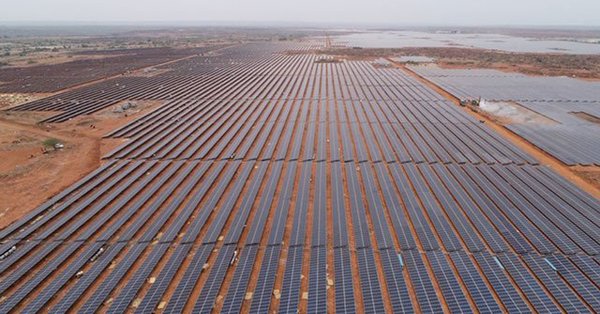India has reached a cumulative 46,246.80 MW of installed solar power capacity as of October 31, 2021. Rajasthan, with 8,644 MW installed PV capacity, leads the nation’s solar march. It is followed by Karnataka (7,483 MW) and Gujarat (6,052 MW).
This information was shared by power minister RK Singh in the Lok Sabha (lower house of parliament) recently.
The nation has a solar power potential of around 750 GWp, as assessed by The National Institute of Solar Energy based on the availability of land and solar radiation.
The Ministry of New and Renewable Energy is working towards resolving land allotment and grid infrastructure challenges in the solar project implementation as the nation chases the 500 GW by 2030 goal of installed electricity capacity from non-fossil fuel sources, including solar energy.
The Ministry has introduced new modes for better implementation of the solar park scheme to solve the land allotment problem: Mode-5 in the Scheme allows central public sector undertakings to set up solar parks in their land or on third-party land. Mode 8 incentivizes the states for facilitation in the procurement of land.
This apart, the government has allowed waiver of Inter-State Transmission System (ISTS) charges for inter-state sale of solar and wind power from projects to be commissioned by June 30, 2025. A dedicated transmission system for renewable energy has been taken up under Green Energy Corridor Scheme, said the minister.
This content is protected by copyright and may not be reused. If you want to cooperate with us and would like to reuse some of our content, please contact: editors@pv-magazine.com.









By submitting this form you agree to pv magazine using your data for the purposes of publishing your comment.
Your personal data will only be disclosed or otherwise transmitted to third parties for the purposes of spam filtering or if this is necessary for technical maintenance of the website. Any other transfer to third parties will not take place unless this is justified on the basis of applicable data protection regulations or if pv magazine is legally obliged to do so.
You may revoke this consent at any time with effect for the future, in which case your personal data will be deleted immediately. Otherwise, your data will be deleted if pv magazine has processed your request or the purpose of data storage is fulfilled.
Further information on data privacy can be found in our Data Protection Policy.